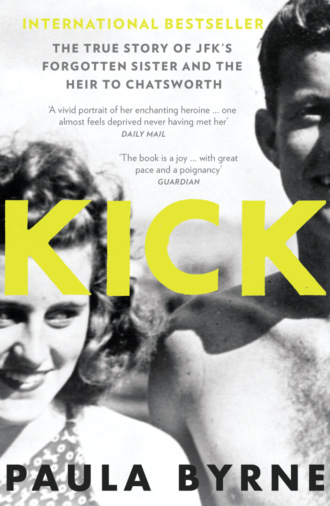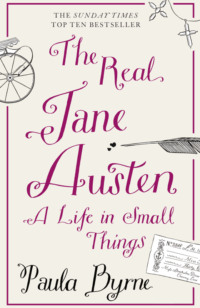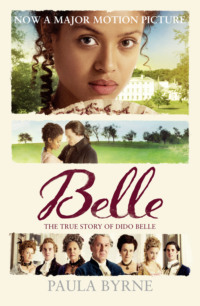
Полная версия
Kick: The True Story of Kick Kennedy, JFK’s Forgotten Sister and the Heir to Chatsworth
2
A Beautiful and Enchanting Child

All my ducks are swans … but Kick was especially special.
Joseph Kennedy
Kick was born, like her brother Jack and sister Rosemary, in the twin bed nearest the window in the upstairs master bedroom at 83 Beals Street in Brookline. From the start, Kathleen was a special baby. One of nine children, she would take on the status of eldest daughter, as a result of Rosemary’s special needs which made her forever a child.
Rose doted on her baby, but on the day that she was born, Jack, just two and a half, developed a serious case of scarlet fever and was hospitalized. In those days, as Rose recalled, it was a ‘dreaded disease, fairly often fatal, quite crippling in aftereffects’.1 Joe proved himself to be an exemplary father, praying for his son and spending hours in the Boston City Hospital. He had ‘never experienced any serious sickness in the family previous to this case of Jack’s’ and he had ‘little realized what an effect such a happening could possibly have’ on him.2
Jack of course did recover, and became particularly close to Kick. He returned home just before his third birthday, and he was shown his new baby sister. On the medical index cards that Rose kept for all of the children, she wrote that Jack seemed ‘very happy’ to see his sister.3 Physically Kick resembled him the most, with thick golden-brown hair and blue-grey eyes. She would not grow up to be conventionally beautiful. She had her mother’s strong jawline and short neck along with a somewhat square face that was unlike Rosemary’s (which was heart-shaped), but she was a striking girl with lovely ivory skin. Kick’s beauty was all within, and she would grow up to have the greatest sexual charisma of all the girls. Men would be utterly captivated by her.
She was a fearless toddler, always wanting to keep up with her two elder brothers in sports and physical activities. Rose noted in her journal that at the age of two and a half she went out in the snow by herself in her little sleigh.4 She was already exhibiting signs of the independent spirit that would define her life. In a diary fragment, Rose wrote that her three-year-old daughter was ‘a beautiful and enchanting child’, with the soft, high colouring and beautiful skin of her Kennedy grandmother: ‘Although we delighted in her, I don’t think we could have spoiled her if we had tried.’5
Rose Kennedy has sometimes been presented as a somewhat cold and uncaring mother. Nothing could be further from the truth. She was a strict disciplinarian (one had to be with nine lively children), but her journals show a different picture to the one that is sometimes perceived. She had a keen sense of humour, and she clearly took great pride and delight in her brood. Like many a Catholic mother, she especially adored her boys. She noted down all the amusing things that Joe and Jack did: ‘Joe Jr. and Jack have a new song about the Bed Bugs and the Cooties. Also a club where they initiate new members by sticking pins into them.’6 Another entry recorded: ‘Boys went to store and saw “No dogs allowed in this Restaurant” and they put in front of it “Hot”.’7
Kick was also naturally funny. When she was a toddler, her mother tried to discourage her from sucking her thumb in the night by binding it with a plaster. Rose noticed the next morning that it had been removed and when she asked where it was Kick replied innocently, ‘A little mouse took it.’8 Her first surviving letter was written to Santa Claus when she was six: ‘Dear Santa Claus i want a doll and a doll carriage tea set and paper doll little book and little blck board your little friend Kathleen.’9 Throughout her life, she adored writing letters, always scribbling at high speed, with frequent slips of the pen, regular spelling mistakes and occasional bad grammar (as far as possible, I reproduce her exact words in all quotations, only correcting where there is ambiguity of sense).
With so many children in the house, Christmas was a special time. Rose recalled that it was always ‘the greatest event in our house’.10 The children all helped to select the Christmas tree, ‘as big as our living room would allow’. Rose remembered them choosing presents carefully for one another, ‘a story-book with large colorful pictures’ for Jack, or a ‘wind-up toy’ or ‘for the baby of the moment, a rattle, or teething ring, or jingle bells’. Then the children would excitedly wrap them and hide everything away in secret places until Christmas Day.
Rose would tell them the Christmas Nativity story and the children would sing ‘Away in a Manger’, then on Christmas morning they would look to see what Santa had brought. The house looked like a Fifth Avenue toy-shop.11 She would also tell them the story about how her father had started the idea of public Christmas trees for those people who couldn’t afford to buy their own. Honey put up a Christmas tree in the middle of Boston Common, ‘and the idea spread, until thousands and thousands of cities and towns and villages all over the country have public Christmas trees every year’.12
Rose claimed that she was particularly close to her first four children. ‘I spent more time with them. I knew their every thought and each personality fascinated me,’ she declared in her memoirs.13 In an entry in her journal for 1923, she seems less enamoured: ‘Took care of children. Miss Brooks, the governess, helped. Kathleen still has bronchitis and Joe sick in bed. Great Life.’14
Rose, having made her decision to stick by Joe, was more content than she had been before, and she had all the trappings of wealth to reconcile her to the realities of her marriage. She took solace in her money and status. She was back, but it was to be on her own terms.
Joe had almost made his first million by the time Kick arrived. A few weeks after she was born, the Kennedy family moved into a large, newly built Colonial-revival house, at 131 Naples Road, which had all mod cons, including a washing machine and ice-box. Rose brought her cherished grand piano and her Sir Thomas Lipton crockery embellished with the Irish shamrock.
She had servants and a chauffeur. All the children had their own bedrooms, and so did she and so did her husband. This was an important symbol of Rose and Joe’s increasingly separate lives. They also began vacationing apart, sometimes for months at a time. When they went to New York City, they always stayed at separate hotels.
The house had a wraparound porch, a key to Rose’s management of her ever-increasing brood: ‘the front porch is one of the greatest arrangements ever imagined for the benefit of mother and child’. She divided the porch into sections with folding gates, so that the children could play together but also be safe, and she could keep a close eye on them.15 The children were entertained by the ‘full panorama of neighborhood life … cars passing by, people walking along (many of them acquaintances who waved), the letter carrier, the milkman with his wire basket loaded full as he came to our house and empty as he left, the policeman passing by on his patrol, the grocery boy, tradesmen, visitors, and friends of all degrees and kinds – everybody with a smile and cheerful greeting for the children’.16
Kick’s first school was the Edward Devotion School, a five-minute walk from her family home. Joe, Jack, Rosemary and Kick all attended the school, though Rosemary was kept back from first grade and stayed in a class with younger children. She was rarely teased because she was so beautiful and innocent, and she had siblings to take care of her.
Rose Kennedy was a natural teacher. Indeed, she was probably a better teacher than a mother. Not coddling the children, or being overly affectionate, teaching them to be strong and independent, was part of her code. The children lived by a strict routine. Fresh air and exercise were high on the list. They were encouraged to take part in sports, especially swimming and tennis, to eat the right sorts of food, to read the right sorts of books, to contribute to the right sorts of discussions. Rose kept a close eye on their diets. She was obsessed with their weight, particularly the girls’. Every Saturday the children were weighed, and Rose scrupulously made a note of the latest figures on the index cards that contained all of their medical information. At the age of just seven, Kick wrote to her mother, ‘I gained a pound and a half. Eunice gained some too. Rose is as fat as ever.’17
Joe Kennedy wanted his family to be sleek and lean. He did not want his children to look like fat Irish peasants. The children were perfectly turned out, usually all of them dressed in the same clothes, as if their only identity was as a Kennedy – matching middy blouses and skirts for the girls and identical sailor suits for the boys.18
Rose hired an orthodontist to straighten out the children’s teeth, giving them the famous ‘flashing Kennedy smile’. For five years the children hopped into their father’s Rolls-Royce to be driven down to New York to a ‘superdentist’ to have their braces tightened. Rose closely monitored the intake of candy (only one piece allowed per day after dinner); tooth-brushing took place after every meal. With the thirteen-year age spread in the family, the dentist visits covered a span of two decades.
Rose admitted that she had all the domestic help she required, and that her role in the household was more like that of an ‘executive’. She recalled twenty years of ‘rows of diapers hanging up to dry on the back-yard clotheslines’.19 During the winter months, the diapers would freeze on the line, and would have to be thawed on the steam radiators.
Rose would think nothing of spanking the children with a ruler or a wooden coat hanger. She would never hit them in anger, but she believed in smacking, especially as she had such boisterous children. As she said, the mere mention of a spanking was enough to moderate a child’s bad behaviour. In later years, her grandchildren retrieved all the coat hangers from the closet and threw them down the garbage chute, just in case. Rose thought this was hilarious. Spanking was a very Roman Catholic punishment – immediate, direct, not inflicted in anger, and with the lesson learnt everyone could move on. Rose’s second method of discipline was to lock naughty children in the cupboard: ‘Well, I put them in the closet, but … they weren’t scared of the dark. It would just get one or two of them out of the way for a while.’20
Rose’s lack of emotional nourishment left its scars on her children. Jack, who was a sensitive boy, remembered: ‘My mother never really held me or hugged me. Never! Never!’21 The only time she touched them was to spank them. Kick, like Jack, was uncomfortable with physical demonstrativeness, which was another legacy of Rose’s emotional sterility. Later in life, Kick sought out several maternal substitutes, most notably Nancy Astor, with whom she developed deeply affectionate relationships. Older women were drawn to her, sensing that she lacked that special mother’s love.
Rose left the hugging and kissing to the children’s nanny, a working-class Irishwoman called Katherine Conboy, known to the family as ‘Kico’. Kick and her sisters adored her, and they would spend hours in the kitchen chatting to her. She in return adored the Kennedy children. Rose was perfectly happy with this arrangement. She simply did not see it as her role to kiss and hug for fear of ‘(s)mother love’. Respect was her by-word. The children always called her ‘Mother’, and they feared and loved her in equal measure.
Thus the Kennedy children were raised as upper-class British children were, by the nanny, and emotionally distant from their parents. It made them tough and independent, but it also left psychological wounds. Perhaps this was one of the reasons why Kick and Jack understood and sympathized with their English aristocratic friends. Rose’s strategy was to encourage the eldest son and daughter to take on the role of nurturing and shaping the other children. Joe Jr took to this role of little father with aplomb. Jack later said, ‘I think if the Kennedy children amount to anything now, or ever amount to anything, it will be due more to Joe’s behavior and his constant example than to any other factor.’22
The surrogate-mother role was more difficult for Kick because of Rosemary. Kick had to assume the role of eldest sister and was encouraged to take responsibility for all of her sisters, but, although she loved them, she was not naturally suited to the role. She was too wild, too free-spirited. Eunice, just one year younger, was much more temperamentally suited to that role, and she felt especially responsible for Rosemary. All of the girls mothered Teddy, the baby of the family, who was born in 1932. ‘It was like having an army of mothers around me,’ he recalled.23
Kick worshipped her father. He was a forceful presence in the lives of the children, despite the long absences caused by his work. He approached his duties as a father with great seriousness, and he loved children, but only his own. When he was away from home, every Sunday the children would line up in order of age and speak to him on the telephone.24
When he returned from business trips, it was a moment of high excitement for the children. ‘He would sweep them into his arms and hug them, and grin at them, and talk to them, and perhaps carry them around,’ Rose recalled. As each child became able to talk he would ‘want that child in bed with him for a little while each morning. And the two of them would be there propped up on the pillows, with perhaps the child’s head cuddling on his shoulder, and he would talk or read a story or they would have conversations.’25 Joe struggled with Rosemary’s mental incapacitation. He wanted his children to be perfect Americans, and that was one of the reasons he especially doted on Kick, who was so lively and smart. She later called him a ‘powerhouse, a force of nature’.26
He believed in treating the small children as young adults, refused to talk down to them and was plain-speaking and blunt, though loving. He was very tactile with the children, unlike Rose. They knew, however, not to overstep the mark, and if they did, one ‘Daddy’s Look’ was all it took: ‘ice-cold steel blue, piercing right into and through you and stripped you to the soul’.27 But if the children were ever in trouble, Joe insisted always on hearing the truth: ‘tell me the truth. Tell me everything about it, the whole truth. Then I’ll do everything I can to help. But if you don’t give me the truth, I’m licked.’28
Joe had his own inimitable way of speaking, which the children long remembered, with amusing phrases and aphorisms that became part of family lore: ‘applesauce’ (bullshit) was not tolerated, nor would he accept ‘monkey business’. ‘He doesn’t have the brains of a donkey’ or ‘He doesn’t have enough brains to find his way out of a telephone booth’ were Daddy expressions. ‘All my ducks are swans,’ he would say of the children, adding that Kick was ‘especially special’.29 ‘No crying in this house’ was another favourite, along with ‘You’d better believe it’, ‘Things don’t happen, they are made to happen’ and ‘I don’t want any sour pusses around here.’30 In later years, the children, now adults, would have cushions made with his aphorisms embroidered on them.31
Joe was not one for self-pity. Teddy revealed the key to his character when he described his father’s support and optimism, especially when things went wrong: this was when Joe was at his best. ‘The greater the disaster, the brighter he was.’ When things went really badly, Joe would declare, ‘That may be one of the best things that ever happened to you!’ But, most of all, Joe wanted his children to strive. Not necessarily to be the best, but to ‘strive’ for excellence. And then: ‘After you have done the best you can, the hell with it.’32
This interest and devotion exhibited by a father towards his children was highly unusual in those days, when fathers were often remote and women were left to run the house and family. As well as the telephone calls, the children were encouraged to write letters to their father, and he admonished them whenever they forgot to write. Kick’s earliest letters to him are full of affection and love, funny stories, and kisses, hearts and pictures. In preparation for writing her memoirs, Rose looked back over her papers and noted that Kick’s ‘early letters seemed so warm and affectionate, perhaps more so than the other children’.33
Kathleen also missed her father and worried about him when he was away: ‘Dear Daddy, I hope you have got rid of your cold … We are all fine and we miss you very much.’34 She told him jokes, reported that she had joined the Girl Scouts, that there had been ‘peachy skating’ at the Field Club, and asked ‘are you coming home soon?’35 Her letters to Rose were much less effusive.
In 1925, Joe set up a trust fund for each of his children that would increase to $10 million by the mid-1940s. All of the children were ‘trust fund’ babies. They had the cushion of money, which also bestowed confidence, but also carelessness.
In May 1927, when she was seven, Kick made her first Holy Communion. Her parents were in California, but she wrote to tell them that she had been preparing for it by going to church every day for the week leading up to the ceremony. It’s surprising to discover that Rose and Joe were absent. For Catholic children it’s a very special ceremony, a watershed moment in which the Holy Eucharist is taken for the first time. Little girls are dressed to look like mini brides in white dresses and veils, symbolizing purity. Shortly before Holy Communion, the child makes their First Confession, a daunting experience in which the heart is opened in a dark booth. The priest, who sits behind a screen or grille, gives absolution; the child says an act of contrition and is given penance in the form of prayers.
It was left to Joe Jr to take on the paternal role, writing to his parents to inform them that little Kathleen was preparing herself for the sacrament.36 By this time Rose had seven children and was pregnant again. Joe Sr was about to become even busier, and Hollywood was beckoning.
3
Forbidden Fruit

A real-life Jay Gatsby, ever-reinventing and legitimizing himself.
Amanda Smith, Joe’s granddaughter1
September 1927.
They tumbled out of the silver Rolls-Royce with blue fenders, like characters from F. Scott Fitzgerald’s The Great Gatsby. The glamorous woman and the tall, handsome, impeccably dressed man in his white flannels. Then came the children. There were seven of them, good-looking, beautifully turned out, barely able to conceal their excitement. Mother and children had taken a private train from Boston, where Joe met them, and they were now arriving at their newly rented home in Riverdale, an affluent suburb of New York. The Kennedys always knew how to make an entrance.
The move was crucial for Joe, who knew that however much money he made, he and his family would never belong in Brahmin Boston. They would never be welcomed at the right sort of country club. Joe later said that he had moved because he felt that his daughters would never be invited to the best coming-out parties in Boston. He knew that New York was a meritocracy in a way that Boston could never be.
Joe’s rise to the top was carefully orchestrated. He had the big house; he wore tailored suits and custom-made shirts and refused to ride the streetcar to the office, preferring to drive in his Cadillac. He gave up baseball for golf, through which he could make important connections. He was still an outsider. But there was one place where he could use his outsider status to his advantage, and where he would make his fortune. Hollywood.
In November 1919, Joe, seeing the opportunities in the new world of moving pictures, had set up his own film-distribution company, Columbia Films Inc. By 1926 he was a movie mogul, and owned his own motion picture company, FBO (Film Booking Offices of America). One of his strategies had been to convince the studios that he was the man who could clean up Hollywood. In the early twenties Hollywood had been rocked by sex scandals and charges of immorality, such as the notorious Fatty Arbuckle affair, when the actor was accused of the rape and murder of a young starlet.
Film titles such as Loving Lips, The Restless Sex and Short Skirts give an idea of the way that Hollywood was going. Joe would give Hollywood good clean family films. Furthermore, there was widespread anti-Semitic distrust of the studios, which were mainly run by Jews. Joe, by contrast, was ‘a Harvard graduate, a Boston businessman and banker, a family man, a practicing Christian, and decidedly not a New York City Jew’.2 As studio head, Joe instituted new accounting procedures and fired several of the overpaid executives. While the films were produced in Hollywood, the major decisions were made on the East Coast. Kennedy moved into the FBO offices at 1560 Broadway off 24th Street in New York City.
Joe was known in the studio world as the ‘blond Moses’, leading the way for film companies converting from silent movies to talkies. His charisma and charm were remarked upon time and time again. The actress Joan Fontaine said, ‘You felt not just that you were the only one in the room that mattered, but the only one in the world.’3 What he took from his time in Hollywood was the art of performing as a public personality, and the importance of image. In a stroke of PR genius, he invited in a group of newspaper reporters and explained his vision for the movie industry. ‘Wholesomeness, Mr Kennedy pointed out to his guests, is intended to form the keynote of the pictures … and there is to be a very general elimination of the sex problem movies and of those which depend upon sex appeal,’ announced the Boston Daily Globe.4
The Kennedy children were a key part of his image as a family man. From their perspective, to have a father in the movie world was thrilling. They had access to the latest Hollywood films, much to the envy of their friends. Kick’s early letters are full of references to the movies that she had seen. They provided the backdrop to her life. All the movies were checked in advance for their suitability: ‘if there was a slip-up and the plot became lurid, the projector was switched off and the audience was sent out’.5 The boys loved the cowboy films that Joe sent over. Kick and her sisters watched Douglas Fairbanks movies and films with titles such as Welcome Danger.
Kick attended the Riverdale County School, along with four of her siblings. As Catholics, the Kennedys were outsiders. They were a tribe and they stuck together, but Jack and Kick found it easy to make friends, and were keen to establish their own identity outside that of being a Kennedy. After school, the children played touch football in the field behind the Presbyterian church, Kick joining in with her brothers. A friend remembered that ‘Kathleen was one hell of a football player. She was on top of everything.’6
She was especially close to Jack, a thin, underweight child who continued to be plagued with illness. Like many clever, sickly children who miss a lot of school, he devoured books and had a precocious intellect. His passion was for history and reading literature and poetry. One of his defence mechanisms was a highly developed sense of humour. Kick was the butt of many a brotherly joke poking fun at her lack of intellect, but this was part of their teasing relationship. A schoolfriend from Riverdale days observed that ‘Kathleen was bonded to Jack with a profundity that mere blood seemed insufficient to describe.’7
Kick was given a very special birthday present for her eighth birthday: a new baby sister. She was to be called Jean. Kick wrote to ‘Dear Daddy’ and told him, ‘I like Jean very much.’8 Her father was taking his usual long vacation in Palm Beach. ‘I hope you are having a nice time in Florida. Do you go in swimming? Is the water cold?’ she asked in one of her earliest surviving letters.9 In her neat, bold hand, she described a funny moment when she was given a present of a little box of powder for her doll, which she managed to spill over herself. Neither of Kick’s parents was home that winter. Rose had returned to Boston to have the new baby, and Joe refused to sacrifice his annual vacation with his male buddies and business associates.






